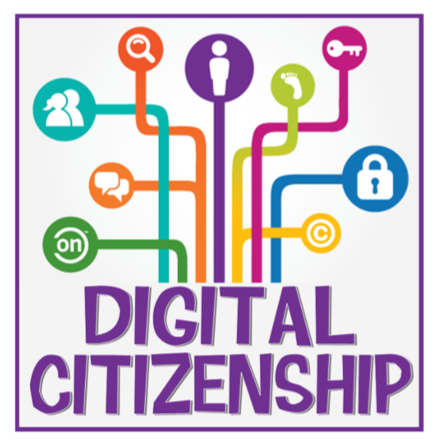The decisions on whether or not to permit or prohibit alcohol sales during high surges of the COVID-19 pandemic have been wrought with political, social, economic and industry pressures. While the evidence suggests that alcohol use during lockdown is exacerbating domestic violence and alcohol abuse (with implications for the social and health sectors), the concerns about lost income to the hospitality industry in reduced alcohol sales and jobs, and to a country due to reductions in collection of alcohol taxes highlights economic and political strife. What evidence have countries in Africa used to make their decisions on bans versus permissions? On lives vs livelihoods? On Adherence vs Circumvention? See below for more information.
EIDM during COVID-19
As champions in advocating for the use of evidence in decision-making, the COVID-19 pandemic presents each AEN member with an opportunity to advocate for evidence-use during these trying times. The AEN has therefore created a special page to support this cause.
The AEN will curate new evidence, examples of evidence-use, and experiences of evidence-use on the African continent during COVID-19 to share with our and your networks throughout the region.
Examples of the kind of content we imagine hosting, among other types, include:
- Rapid reviews for best-practices relevant to certain sectors;
- Participating in multisectoral task forces to address a key concern;
- Responding to demand-led syntheses of best available information to advise decision-making;
- Providing creative ways to address critical challenges in EIDM at this time; and
- Guidelines that have considered as far as possible the best available evidence
- News media highlights on EIDM during COVID in various African countries
- Blogs by AEN members on key "EIDM during COVID" topics
On this page we provide these as documents, links to other websites, and pictures. Provision of these resources does not constitute endorsement for the content.
To contribute to the content on this page, we invite you to email creative common/open access content related to the COVID-19 outbreak and the use of evidence to combat it to us at info@africaevidencenetwork.org.
Sincerely,
Siziwe Ngcwabe (Head of Operations - AEN)
Nasreen Jessani (Head of Strategy - AEN)
Ruth Stewart (Chair - AEN)
Decisions on alcohol
Links
C-19 and places of detention
Prisons and other places of detention pose a high-risk for the spread of COVID-19. Of particular concern is overcrowding and the resultant difficulties in maintaining social distance and practicing good hygiene. Governments worldwide, and in Africa, have implemented various measures to mitigate these risks. These have included measures inside prisons such as the regular decontamination of surfaces and increased access to medical treatment. It has also included restrictions on visits with people from outside the prison, and releasing lower risk prisoners from detention. Read more below on what guidelines exist for these groups and what measures various African countries have implemented.
Files
Links
C-19 and religious gatherings
Given the high possibility of transmission of COVID-19 in closed and confined spaces, concerns about religious gatherings is no doubt of consideration. Recent examples of outbreaks that can be traced to religious gatherings brings into question what policies are required when lockdown measures are eased across Africa. Measures introduced to help curb the spread of the virus include restrictions on numbers of attendees, social distancing, sanitizing hands, and prohibiting singing. While it is unclear what evidence underlies the opening of these gatherings, others have presented evidence to caution against such decisions.
Files
Testing for COVID-19
Increased infection rates in Africa have meant an increase in the need for testing. With a high demand for tests globally, recent news reports suggest that African countries are struggling to access the tests they need. In addition, laboratory capacity to conduct tests and quick turnaround times are crucial. How can laboratory systems in Africa be strengthened? What advice exists on the rational use of testing? Read more below on the evidence and news reports on these issues.
Files
Links
Misinformation & fake news
Having the best possible information is crucial for governments to lead countries during this pandemic. It is equally important for citizens to know which information to trust so that they can make decisions in their everyday lives. The COVID-19 pandemic has been accompanied by what the WHO calls an ‘infodemic’ – an overabundance of information. Some information is true, but a lot of it is fake. Who are the organisations debunking the myths? How are governments trying to curb, control and criminalise perpetuation of fake news? What are the repercussions? And how does this relate to freedom of expression? Read more below on these measures and debates.
Files
Reopening schools
Across the world the spread of COVID-19 has led to the temporary closure of schools. Although a necessary measure, concerns about the consequences of these closures persist. These include effects on educational outcomes, exacerbating inequities, gendered impacts, mental health, food insecurity, and heightened student vulnerability. Governments in Africa, such as Namibia and South Africa are grappling with the question of how to reopen schools safely. What guidance and evidence exists on the safe reopening of schools? Read more below on this evidence and how it is being taken up.
Files
Links
Donor flexibility for research
Social distancing measures have disrupted many research activities that require interaction with individuals. Yet, research and evidence continue to be so critical to informing African governments on their responses to COVID-19. What strategies have been put in place to support continued generation and syntheses of evidence for decision-making? National as well as international research funders have had to rethink their strategies for supporting grantees during this time. Review the links below to learn more about these changes.
Links
Protecting the elderly
Those 60 years and older are particularly vulnerable to COVID-19. Higher fatality rates have been reported for this cohort than for other adults. Possible reasons for this include comorbidities and declining immune systems with ageing. Consequently both the WHO and CDC have requested that the elderly take special care during this time. Governments across the world have followed with measures such as requests for self-isolation, and to work from home for those who can do so. But is this approach feasible in countries in Africa? Do we understand the lives of this vulnerable group? Do we understand the social and economic relationship between the elderly and other household members? Read more below on approaches to support the elderly in Africa.
Files
Universities: going virtual
As of April 2020, one third of the world’s population was experiencing some form of lockdown and faced with the uncertainty of what follows next. Questions about how to salvage the academic year at schools and universities have been at the forefront for educational institutes. Various South African universities have made the decision to take learning online. This decision is not without controversy and within a highly unequal society has raised questions about access to laptops and data, intermittent internet connectivity, and learning at home, particularly for those living in crowded informal settlements with limited water and electricity provision. What evidence informed this decision? How is it being implemented? What response has it received? Read more by following the links below.
Links
C-19: Community protection
The potential for symptomatic as well as asymptomatic spread of COVID-19 in communities will put disproportionate strain on sub-national health teams as well as community level health services. In addition to guidance from the central government, sub-national health authorities (district, county, etc…) require different implementation measures for prevent ion and control of Covid-19 within their communities. A combination of a targeted, transparent, non-coercive and publicly engaged strategy is required in order to enhance trust, responsiveness and adherence. Click below to learn more about what these could be.
Files
Subnational protection of HCWs
Health care workers (HCWs) – from Community HCWs to facility HCWs - are the first point of contact for patients with the health system. However, lower health facilities in parts of Africa often lack, or have inadequate, infection prevention control (IPC) protocols and vital personal protection equipment (PPE) for them. HCWs are therefore continuously exposed to infections while performing their duties. Concern amongst. Concern at the subnational level is driving an urgent need to plan for infection prevention and control for HCWs under their jurisdictions during the covid-19 pandemic. For evidence, decisions, and implications, on the issue of infection control protocols at subnational and community levels and protection of HCWs across the continent, click on the links below.
Files
Links
Public use of face masks
Governments have vacillated between advocating protective masks for health care workers only, to advising widespread use by the public. The advice globally has been conflicting, predominantly due to the concerns of reserving N95 and surgical masks for those who need it the most: health care workers, those who are diagnosed with COVID-19, and those who are highly susceptible to infection. The fact that the virus spreads through asymptomatic individuals raises the question as to whether there should be widespread use of masks, and if so, what kind. Is this an example of applying the “precautionary principle”? Review the associated links to learn more.
Files
Links
Cash transfer programs
In many countries, cash transfer programs represent the largest of all social policy instruments being used by governments. In the era of a pandemic such as COVID-19 where intense social distancing measures are in place and there are concerns about the virus being viable on bank notes, creative and adaptive mechanisms for cash transfers may be required. Cash transfer programs - particularly those that use in-person delivery of the cash transfers at physical pay points - risk affecting those most dependent on them. However, the systems that have been built to deliver these transfers can perhaps be leveraged to support those requiring assistance due to COVID-19. The documents below provide insight on actions to adapt program implementation to COVID-19 including use of phone surveys, bundled cash transfers etc… They also include recommended actions to enhance programs responses to COVID-19.
Curfews and Lockdowns
The COVID-19 pandemic has resulted in mass efforts for social distancing. Several Governments globally have adopted interventions to assist with such efforts. In Africa, these vary from full lockdowns (Eg South Africa) to timed curfews (Eg Senegal) to restrictions on inter-provincial travels and migration (Eg Kenya). Decisions (and changes in decisions) vary based on the use of best available evidence and balances between the health of the people, the economy of the country, socio-cultural norms, practicalities of social distancing, and the challenges of adopting the intervention in a one-size-fits-all approach. Rapid reviews on how to implement such interventions, and their implications, can be found in the links below. Similarly, links to some government decisions on implementation of interventions can be found below.
Files
Safety of Public Transport
Public transport during times of infectious disease outbreaks poses a veritable threat to society due to seating proximity, ventilation limitations, and cash payment requirements in some cases, that can contribute to increased transmission. However, without reliable and affordable transport options there is no way for the public to traverse their environments. The COVID-19 pandemic has presented an urgent challenge to countries globally to provide ensure the safety of passengers during a crisis such as this. The resources below provide information of evidence as well as measured policies on safe public transport in Africa. Click the various links to learn more.
Files
AEN Special Blog series “COVID-19 and EIDM in Africa: opinions, experiences and reflections”
The affect as well as the response to COVID19 in Africa is as diverse as the contexts of the countries on the continent. The Africa Evidence Network (AEN) has therefore launched a special blog series across a wide range of sectors and topics. The blogs will provide a platform for Africa’s EIDM community to express opinions, thoughts, experiences, and learnings over the next few months. To submit a blog to this special series, please click here for guidelines: https://bit.ly/2Z87IxH.
covid-19 eidm in covid-19Evolving evidence, fake news, and emerging contexts: researchers at the nexus of EIDM for COVID-19

Digital citizen evidence and the future of evidence practice in Africa

Evidence-based approaches to tackling recent increases in gender-based violence

COVID-19 and evidence use in Ghana: key reflections

How a global pandemic catalyses partnerships and collaborations

Why citizens’ experiences matter in crisis response
